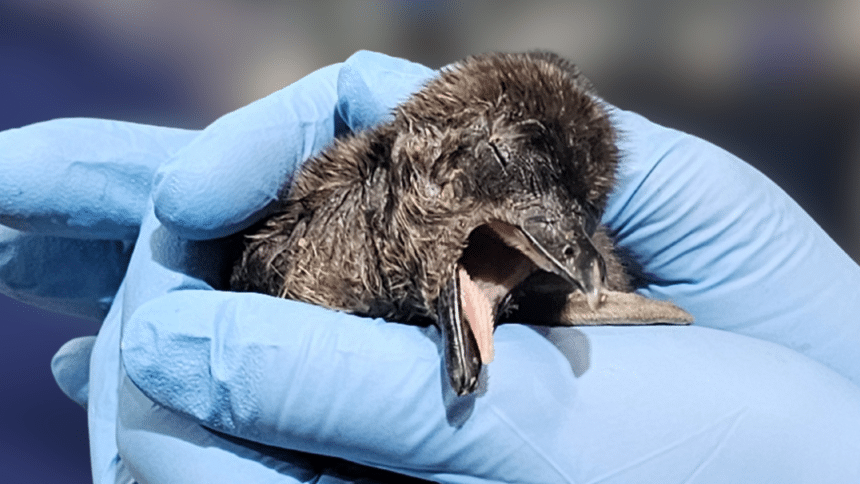Mississippi Aquarium is celebrating the historic hatching of its first penguin chicks.
Officials with the popular Gulfport venue announced that the inaugural African penguin chick was born to parents Pumpkin and Blue on January 20 — at the same time that folks on the Gulf Coast were weathering a snowstorm. On January 25, the colony grew again with the hatch of chick No. 2, belonging to surrogate parents, Fiona and Duke. These chicks are the first penguins to hatch in the state of Mississippi.

“The chicks are still very delicate but are growing every day,” Mississippi Aquarium Vice President of Veterinary Services and Research Dr. Alexa Delaune said. “We keep a close eye on the chicks and examine them every other day to make sure they’re growing and developing properly. The penguin parents are doing a great job so far.”
WATCH: Outdoor animals enjoy snowfall at the Mississippi Aquarium
According to a release from the aquarium, African penguins are one of the most endangered penguin species and urgently need conservation intervention. This species is classified as critically endangered with less than 10,000 breeding pairs left in the wild.
The aquarium’s colony of African penguins has an important job to act as ambassadors for their species. Caring for this species allows Mississippi Aquarium to educate guests and spread the bird’s conservation message.
“The whole crew here at Mississippi Aquarium is overjoyed to welcome the newest members of our Mississippi Aquarium family,” Mississippi Aquarium President and CEO Kurt Allen said. “This is such an amazing accomplishment and a true testament to the phenomenal care our African Penguins receive here from our passionate and knowledgeable staff.”
Mississippi Aquarium plans to continue to share updates on the penguin chicks through their social media channels with Project Penguin supporters receiving exclusive updates. As Mississippi Aquarium’s fundraising efforts continue for the on-campus penguin habitat, visitors can meet one of the adult colony members by booking a penguin encounter or through special events.
The on-campus penguin habitat will allow everyone to observe these charismatic creatures as they grow and continue to thrive. However, $1.5 million of the $9 million needed to build the habitat is still needed.







